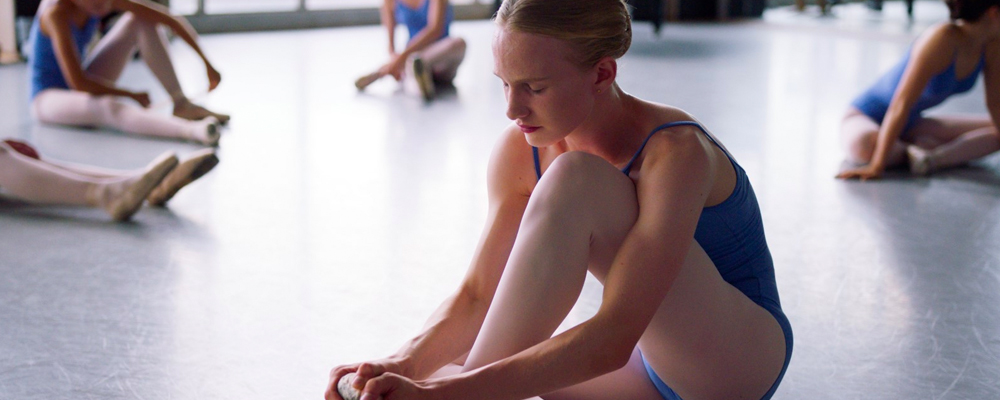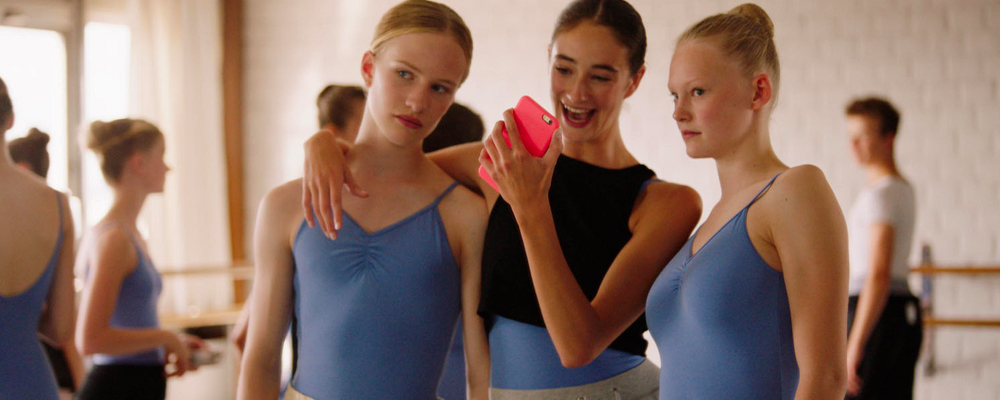‘Girl’ Bravely Explores a Modern Quest for Identity
Alci Rengifo
“Girl” is a portrait, pure and simple. It is a portrait of an individual transitioning into their identity, while living in a world that remains harsh, at times indifferent. This Belgian film has been long-awaited since first premiering at the 2018 Cannes Film Festival, where it garnered awards and praise. It has also stirred controversy around the issue of cisgender artists telling transgender stories, along with backlash for its portrayal of the trans experience. While these are certainly important topics of discussion, there is little denying the power of what “Girl” conveys to its audience.
Lara (Victor Polster) is a 15-year-old aspiring ballerina hoping to make it through one of Belgium’s most prestigious dance schools. She is also transitioning and preparing for gender reassignment surgery. The stress of undergoing a major life change while also experiencing puberty and peer pressure mounts, also because she is falling behind at school due to the physical demands of the training. At home Lara lives with her father Mathias (Arieh Worthalter) and a little brother, Milo (Oliver Bodart). Mathias fully supports Lara’s transition and accompanies her to every medical checkup, keeping track of her hormone treatments. But he also suspects all is not well. As Lara tries to maneuver the school’s social circles, she is also growing frustrated with the pace of her medical treatments, faces the ignorance of classmates and the toll it all takes on her health.
Inspired by the life of trans dancer Nora Monsecour, who collaborated on the film “from day one,” “Girl” avoids turning itself into a melodrama or cliché biography. It does not chain itself to plot points. Instead director Lukas Dhont and co-writer Angelo Tijssens focus entirely on the daily life of Lara. If one of the great features of the cinema is that it has the ability to place us in someone else’s shoes, then this is a great example. The heart of the story is that Lara knows perfectly well who she is, but the world has its cruel and misogynist habits, especially towards women. During class a teacher will ask Lara to close her eyes while he asks the girls in class who might have an issue with Lara using their facilities. After practice she is probed by a fellow dancer as to why she won’t shower with everyone else, this leads to a quiet but searing shot where Lara decides to step into the water, but we sense her immense loneliness. The most hurtful scene is probably during a sleepover, where the other girls pressure Lara about showing them her genital area. There’s not a sense of bigotry here, but instead an ignorant thoughtlessness. Dhont tells this story with a striking intimacy. Lara is not just a character of surface, we also spend time with her behind closed doors as she tapes down her genitals, stares at out a window at lovers in the building across the street and swallows back tears after a harsh practice session. When she almost has sex with a boy living down the hall, it’s a scene heartbreaking in the way it conveys how something so natural becomes a moment of fear for someone not feeling ready to fully open up to another. Lara runs out the door, preferring to avoid removing her clothing.
When “Girl” first premiered at Cannes in 2018, it won the Caméra d’Or award for Best First Feature, the Queer Palm and Victor Polster won the Un Certain Regard Jury Award for Best Performance. Yet there has been a debate about whether it’s fair for a cis filmmaker like Dhont and cis actor like Polster to tell this story. Fair debate, and while LGBTQ artists in general deserve more recognition, what is special about “Girl” is its powerful empathy. It is about the human experience of transitioning as a teenager, and how it is confronted by all of the harshness of adolescence. Polster’s performance is reserved and full of ache. He disappears as Lara, creating a character we feel close to by the end. She keeps her real feelings close, and even Mathias, so understanding and caring, eventually comes close to erupting when he demands to know how she’s doing. Lara begins to lose weight and gets riskier, eventually carrying out a moment of self-harm that will prove brutal for some audience members, but absolutely captures the breaking point of a hurting person.
In a way “Girl” raises questions of femininity that are necessary and challenging. The ballet world forces Lara to obsess over her body, image and performance, like society demanding that women must appear or be a certain way to be considered attractive or respectable. By telling Lara’s story as a purely human narrative, without absurd twists and turns, the film achieves a universal feeling. But of course what it urgently has to say about the experience of transitioning is what should be at the forefront. Why can’t Lara simply live? Because one of life’s great struggles is defining who we are through the journey we endure.
“Girl” premieres March 15 on Netflix.




